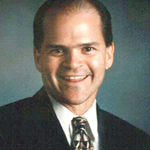How Children Can Reach Their Potential
The goal of Dr. Rick Graebe, a behavioral optometrist in Versailles, is to help bright children reach their full potential.
Because parents who send their children to private schools have the same goal, Dr. Graebe sees himself as a natural ally with those parents.
For more than three decades, Dr. Graebe has helped patients of all ages, especially students, maximize their intellectual performance through the use of Vision
Therapy, a kind of physical therapy for the eyes, brains and body.
To read well, one’s visual system must work at full tilt.
And the visual system is not the same as eyesight.
In order to read effectively, one must have three skills working well:
- Visual efficiency, which describes the eyes’ ability to point, focus and track along the page;
- Visual perception, which is understanding what is read and includes auditory processing;
- Sensory integration, which is the ability to mesh all senses together.
“There is so much going on with reading,” Dr. Graebe said. “It’s a wonder we all can do it.”
Visual skills develop from birth to age 15.
If they are not fully functional, a child is likely to have reading problems.
If these problems are not detected early and treated, a child likely will fall behind at school no matter how hard he works.
“As demand in school increases with each grade level, any deficiencies in the visual system will show up,” Dr. Graebe said.
He points out that Vision Therapy works effectively because it addresses causes, not merely the symptoms, of the problem.
At his office, problems with visual efficiency, visual processing and sensory integration can be detected and treated.
After all, up to 85% of instruction and two-thirds of classroom work involve close-up skills.
In many ways, these issues can loom as a sort of hidden disability.
A trip to the eye doctor may show that a child’s eyesight is 20-20, but because of underlying problems with the visual system, schoolwork is a struggle.
“At least once a week for years, I have heard patients say that they wish they had come to me sooner,” Dr. Graebe said.
“We are in the business of changing lives and when we can help someone reach their full potential then I know we are doing our job.”

